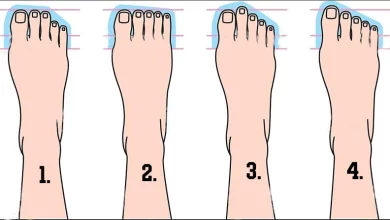- You unexpectedly lose weight and your appetite plummets. “People no longer feel hungry and ultimately start losing weight without trying,” says Dr. El-Hayek. “That’s probably the most concerning symptom.”
- You’re seriously fatigued. Dr. El-Hayek says this could be from a slow blood loss which, coupled with unexpected weight loss, can be a sign of cancer. Blood loss can also lead to anemia, a low red blood cell count, that’s likely the source of your exhaustion.
- You have blood in your stool or vomit. This is much less common, but it can happen if you’re losing a lot of blood.
- You feel full, even after you’ve only eaten a small amount.
- Your bowel habits have changed. Maybe you’re experiencing recurrent bouts of diarrhea or constipation that are out of the ordinary.
- Gastrointestinal symptoms that don’t go away. For example, you’ve had nausea or abdominal discomfort that lasts for more than a couple days.
- You have GI symptoms that you haven’t experienced before. Reflux — when the contents of your stomach come back up into your esophagus — is a good example.
“These are all signs that you should probably go see your primary care doctor to see if you warrant further testing,” advises Dr. El-Hayek. Most of the time, these symptoms are caused by something else, but it’s best to get them checked out so that if you do need treatment, you can get it as soon as possible.
Stomach cancer is on the decline
“The really good news is that this type of cancer is very rare in the United States, and it’s actually decreasing in incidence,” says Dr. El-Hayek. “Less than 2 percent of all new cancer diagnoses are from stomach cancer.”
The main reason for the decrease in cases is probably that infections from Helicobacter pylori, a type of bacteria known more commonly as H. pylori, are being diagnosed earlier than they used to be, Dr. El-Hayek notes. H. pylori is believed to be one of the major causes of stomach cancer because it can cause chronic inflammation in your stomach lining, as well as ulcers.
“Now that we’re making the diagnosis of H. pylori earlier when patients get symptoms, they’re treated with antibiotics, the infection is eradicated and the overall risk of stomach cancer is presumably decreased,” Dr. El-Hayek says.
Although H. pylori infections are extremely common, many people don’t ever have any symptoms. “For those who do get symptoms, it’s normally this dull, achy pain after eating,” says Dr. El-Hayek. You might also notice nausea, bloating, burping, weight loss and lack of appetite. If you experience any of these, Dr. El-Hayek recommends that you see your doctor for testing.
What are risk factors for stomach cancer?
There are some other factors besides H. pylori that can increase your risk of developing stomach cancer too, Dr. El-Hayek says, such as:
- Smoking.
- Being male.
- Age (your risk goes up as you get older).
- Being overweight or obese.
- Previous stomach surgery for ulcers.
- Having type A blood.
- Certain genetic disorders.
- A diet high in smoked foods, salted fish and cure meats.
- A family history.
How to lower your risk
“As a society, we eat a lot of processed and unhealthy foods that cause these benign symptoms that we have. We really need to shift back to a cleaner, mostly plant-based diet,” says Dr. El-Hayek. “There’s no doubt that the data supports a diet that’s rich in fresh vegetables, minimal fruit and minimal meat, especially processed meat. Avoiding these toxic foods will not only decrease a person’s risk for cancer development, but also the digestive symptoms from eating them.”



